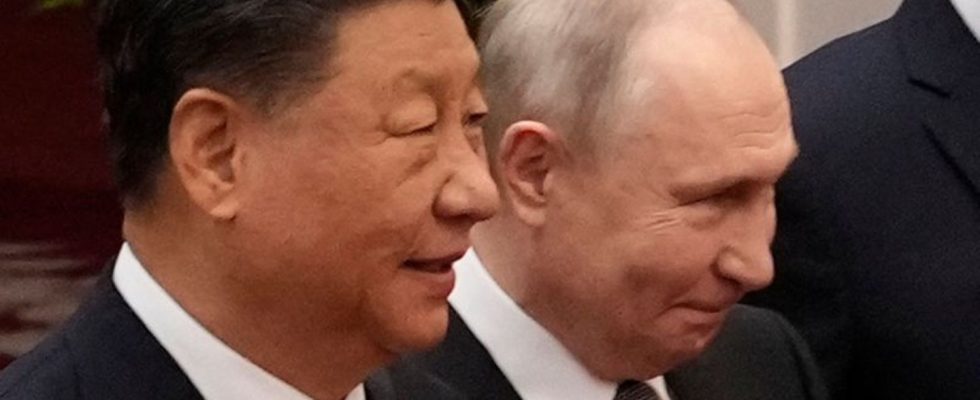diplomacy
China sees itself on the right track with the “New Silk Road”.
Chinese President Xi Jinping (l) and Russian President Vladimir Putin take a group photo at the Belt and Road Forum. photo
© Suo Takekuma/Pool Kyodo News/AP
Putin, Orban and other state representatives meet in Beijing to discuss China’s “New Silk Road”. In his opening speech, President Xi Jinping insisted on the success of the investment project.
Despite serious international conflicts and tensions between major economies China’s “New Silk Road” is on the road to success. “It is the right path forward,” said state and party leader Xi Jinping on Wednesday in Beijing at the opening of the third summit on the gigantic infrastructure and investment project. Unprecedented historical changes were unfolding in the world. According to Xi, developing countries should also benefit from the Silk Road project that began ten years ago.
Representatives from more than 140 such countries in Africa, South America and Asia, as well as the Taliban from Afghanistan, have been guests in Beijing since Tuesday. With the initiative, China grants loans in their countries and implements construction projects worth billions, including in transport networks or ports.
Xi was critical of the USA and EU states such as Germany, which are not Silk Road members but have imposed sanctions against China or are investigating Chinese products. “We are against unilateral sanctions, economic coercion, decoupling and disruption of supply chains.” China will not engage in ideological confrontation, geopolitical games or confrontation through bloc politics.
The Middle East conflict is also a topic on stage
Xi did not address the Middle East conflict. Nevertheless, the terrorist attack by the Islamist Hamas on Israel and the ongoing Israeli counterattacks in the Gaza Strip were the topics of the opening. UN Secretary-General António Guterres called for a ceasefire in his speech. “I call for an immediate ceasefire to provide enough time and space for both of my calls to be realized and the epic human suffering to be alleviated.” His two calls were for Hamas to release hostages and for Israel to allow humanitarian aid into the sealed-off Gaza Strip.
Russian President Vladimir Putin went on stage after Xi – also a sign that the Kremlin chief was one of the most important guests from a Chinese perspective. Putin praised the “New Silk Road”. The project and Russian participation in it ensured that common solutions to important regional problems were found. During his speech, some Western representatives left the room. In the subsequent bilateral meeting between Xi and Putin, the Chinese assured his counterpart of continued support. Xi called Putin an “old friend” in his greeting.
Projects as far as Duisburg
Xi also announced an eight-point plan with which China wants to enter into further cooperation, but it remained rather vague. According to the 70-year-old, this includes the expansion of the Chinese-European express railway line. The connection extends from China to Duisburg in North Rhine-Westphalia, where, according to Beijing, more than 100 Chinese logistics companies have set up shop. In total, according to official information, the line crosses 200 cities in 25 European countries. Xi also wants to expand China’s exchanges with other countries in the field of artificial intelligence, he said.
A big topic at the summit was environmentally and climate-friendly business. According to participants at a managers’ conference on Tuesday, 150 contracts and letters of intent were signed there, many of them in the energy sector. China, which still generates electricity mainly from burning coal, sees opportunities in renewable energies for the “New Silk Road”, for example through the construction of wind and solar parks.
Criticism of the debt trap for poorer countries
In 2013, Xi launched the “New Silk Road”. Since then, Beijing has invested almost a trillion US dollars in projects worldwide. In many developing countries, roads, railway lines, airports and seaports were created where there were none before. However, critics say that many poorer countries are becoming heavily dependent on Beijing because of the debt they owe to the People’s Republic. China, on the other hand, argues that this gives developing countries an opportunity to benefit from global development.

